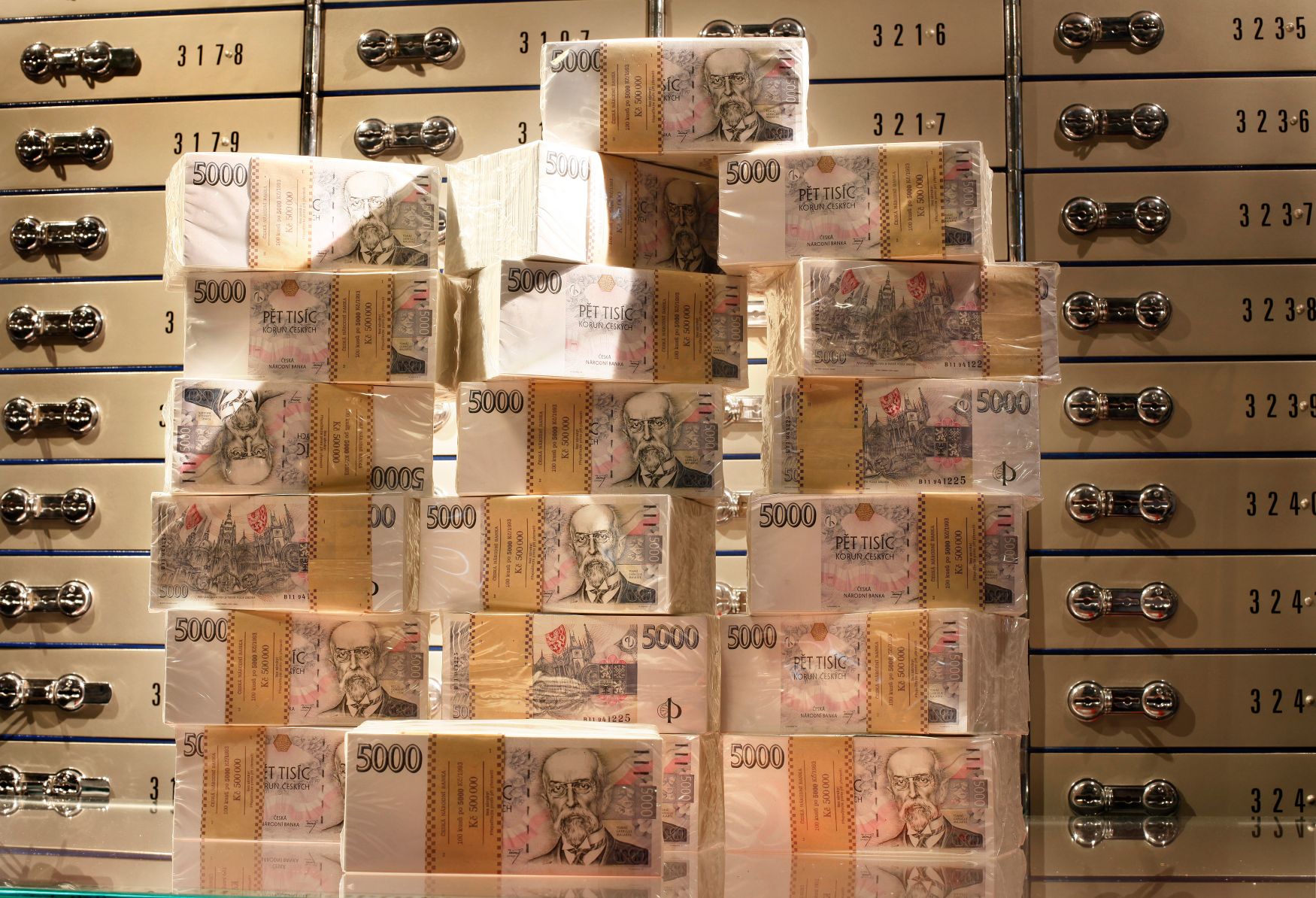The Czech currency could weaken very quickly, believes Purple Trading currency trader Jaroslav Tupý. According to him, the situation in Ukraine means great uncertainty and risk aversion for global financial markets. The koruna, along with other Central European currencies, is a risky asset, he said.
According to him, risk aversion is reflected in the strengthening of gold and the growth in demand for US government bonds. “Currently, safe harbors are currencies such as the US dollar, the Japanese yen or the Swiss franc, risky assets are cryptocurrencies, stock indices and Central European currencies such as the Polish zloty, the Hungarian forint or the Czech koruna,” Tupý warned.
However, Bitcoin has strengthened by about 13 percent since the Russian invasion of Ukraine. Russians and Ukrainians, who put money in cryptocurrencies, contribute to this.
While at the beginning of February the koruna traded against the euro at 24.32 CZK / EUR, a month later it is 24.95 CZK / EUR, which is a decrease of 2.6 percent. The koruna weakened against the US dollar from 21.65 to 22.30 / USD during February, ie by as much as three percent.
“Although the Czech koruna is protected by a high interest rate differential, the Czech National Bank (CNB) has been raising rates aggressively over the past six months, while the European Central Bank has kept rates at zero. .
According to him, the further development of the koruna depends on how quickly the situation in Ukraine manages to stabilize. He stated that in any case a high volatility can be expected, even though the CNB, according to its representatives, has sufficient foreign exchange reserves to defend itself against it. However, if the situation escalated, according to Tupý, the koruna could weaken very quickly, even to levels after the outbreak of the pandemic in March 2020, when the koruna traded against the euro at CZK 27.93 / EUR and against the dollar at CZK 26.07 / USD.
According to the analyst, further increases in inflation are quite certain, mainly due to higher prices of gas, oil and other commodities, such as wheat, of which Ukraine is a major producer. He said that overall, it is possible to expect a reduction in global economic growth, which will significantly slow down GDP growth in the Czech Republic. According to his estimates, GDP in the Czech Republic may fall by one to six percent.
According to Tupý, the CNB puts all this in a difficult role in further decisions on interest rates. The stagflation scenario is at stake, ie a situation where there is high inflation in the economy and at the same time little or no economic growth. “And this is a scenario that will definitely not help the Czech crown to strengthen,” Tupý added.
–


